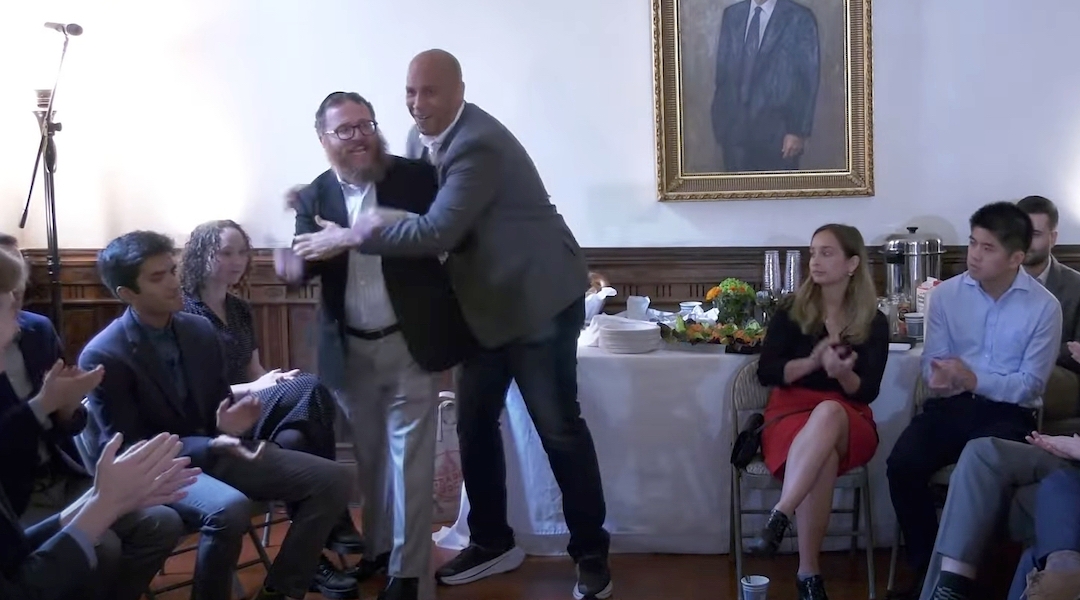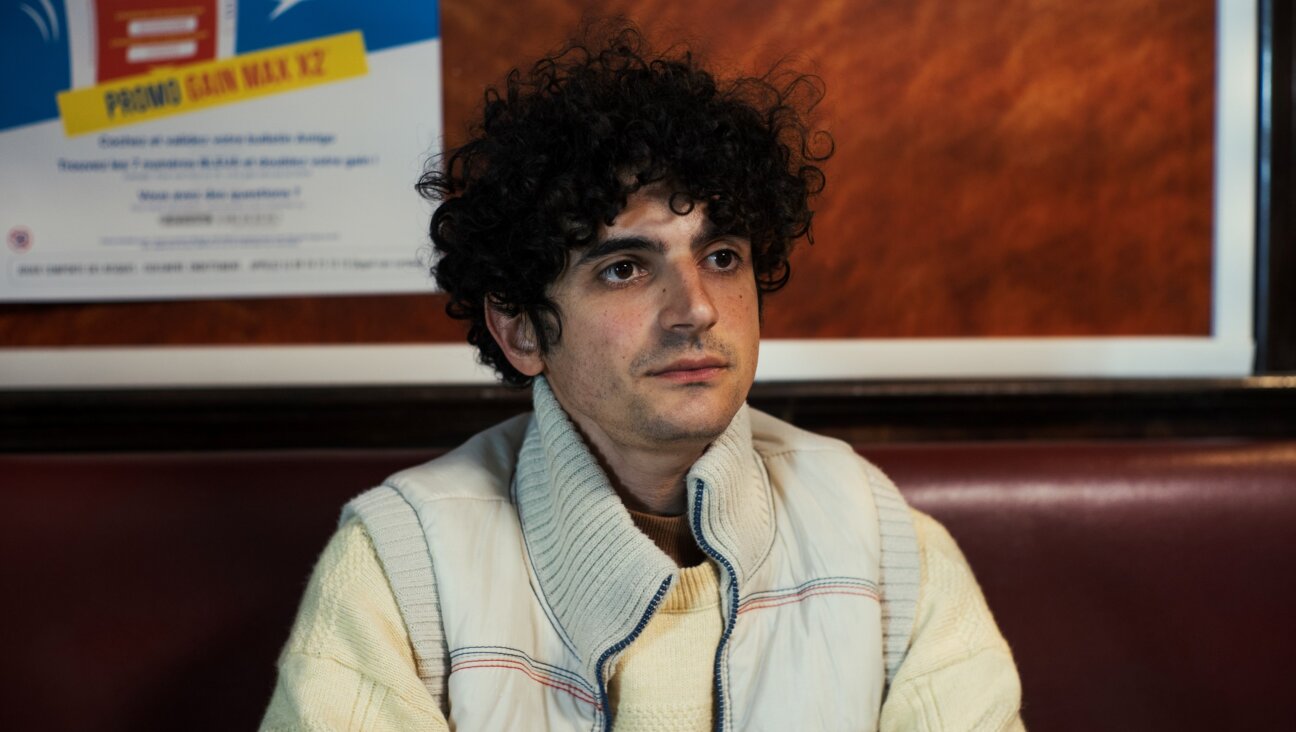Orthodox Schools Test the Waters With ‘Intimacy Education’ Classes

Early Intervention: Tzelem’s director Jennie Rosenfeld stressed the importance of reaching students from an early age: ‘We really have the potential to stop problems before they start.’
Sexual education courses are taught regularly to adolescents in public schools, but the subject isn’t part of the typical curriculum offered at Orthodox Jewish day schools. This situation, however, might soon change. A new effort that is under way could leave a permanent mark on the ways in which Orthodox educators handle classroom instruction of such topics as sexuality, anatomy and reproduction.

Early Intervention: Tzelem's director Jennie Rosenfeld stressed the importance of reaching students from an early age: 'We really have the potential to stop problems before they start.'
Tzelem, a special project of Yeshiva University’s Center for the Jewish Future, is currently piloting the “Life Values and Intimacy Education” curriculum at two New York-area day schools. The curriculum is designed to educate students in grades three through 12 about sexuality, intimacy, communication, interpersonal relationships and values, all within a Jewish context. Classes are being taught this year in grades six and seven at SAR Academy in the Riverdale section of the Bronx, and in grades four, five and six at Yeshivat Noam in Paramus, N.J.
According to Jennie Rosenfeld, director of Tzelem, “Life Values and Intimacy Education” is the only comprehensive curriculum in sexual education and personal values in the Orthodox world. She says there is a vital need for such a program in the community. Tzelem, which was started in 2005 by Rosenfeld and Koby Frances, provides educational resources on intimacy and relationships to the Orthodox community, where adults and children often face conflicts between the realities of life in the modern world and the laws they must uphold as Orthodox Jews. Tzelem offers a number of services, including programming for kallah teachers (women who prepare brides for marriage) and training for rabbis, who often counsel young couples.
“Sexual education in the schools is tremendously important,” Rosenfeld said. “Everything [Tzelem does] with older educators [and] with rabbis, those are all Band-Aid measures. But when you take a third or fourth grader, and you start at that young age… we really have the potential to stop problems before they start.”
The new curriculum is the brainchild of a group of concerned community educators, rabbis, lay leaders and counselors associated with the Fuchs Mizrachi School, outside Cleveland. The original text was written in 1999 by Yocheved Debow, who holds a Master of Arts in child clinical psychology, and Anna Woloski-Wruble, a nurse midwife with a doctorate in nursing education. At the time, Debow was the academic principal of the school.
“[We] had been looking for an appropriate form of health education for their school which would address issues of intimacy and sexuality from a halachic perspective, but could not find anything,” Debow said in an e-mail to the Forward.
The original document, which provided a framework for teachers to use in classrooms, drew from a number of resources, including sexual education guidelines released in 1991 by the American government. The writers then adapted those guidelines to fit the needs of Orthodox Jewish day schools. An early version of the middle-school curriculum was piloted at Fuchs Mizrachi.
Rosenfeld met Dubow several years ago at a conference, where she first learned of the curriculum. In the fall of 2006, after undergoing a number of revisions, the curriculum had a start at SAR Academy and Yeshivat Noam.
The classes using the current curriculum are separated by gender and taught 10 to 15 times per year. The coursework focuses on six key concepts: values and personal skills, such as decision-making and communication; relationships, including family, love, friendship, marriage and parenting; human development, covering reproduction, puberty, body image and tzniut (modesty); sexual behavior, including masturbation, abstinence, sexuality and sexual dysfunction; sexual heath, covering contraception and sexually transmitted diseases, and society and culture, examining the media, society, laws of family purity and gender roles.
The classes examine all these subjects from a Jewish perspective. “The curriculum is coming from a really unique approach,” Rosenfeld said. “It’s sexual education, plus. It frames sexual education in the context of Halacha, of Jewish law, and of Modern Orthodoxy.”
The curriculum does not shy away from controversial issues, but according to Rosenfeld, all the material is taught at an age-appropriate level. Grade three, for example, focuses on Torah values, communication, family and body image, while grade 11 has specific classes dedicated to homosexuality and sexual abuse.
“In the younger grades, the actual sexual education plays a very small role. [They] spend a lot more time on personal development,” Rosenfeld said. “As the kids get older and are struggling with various issues, the curriculum [focuses on] the challenges the kids are facing: the challenges between the messages of their bodies as they go through puberty and the messages of the Halacha, of postponing or delaying sexual activity. The curriculum says to kids: ‘Listen, there’s a tension between what the Halacha is asking of you and what you’re going to want to do. And that tension is real.’”
The fact that Orthodox schools are teaching such sensitive subject matter begs the question of how to hold open discussions about reproductive organs and sexuality without violating rules of modesty. Officials at both schools are emphatic that the material is presented in a way that does not violate Halacha. The classes use scientific diagrams of the human reproductive systems, and only anatomically correct language is permitted.
As for the more sensitive issues, according to teachers at both schools, no subject is off limits. “There are definitely questions which we choose to address on an individual basis,” said Ali Bloom, who teaches fifth grade girls at SAR Academy. “But in general, I’ve never had inappropriate questions.”
“The goal is really to develop a healthy understanding of what it means to grow up,” added Rabbi Menachem Linzer, associate principal of SAR Academy. Linzer currently oversees the program at the school, and last year he taught the sixth grade boys.
Academy classes are taught by teachers from within the schools who are not necessarily experts in health education but receive intensive training on how to present the subject matter. According to Rosenfeld, the fact that the classes are taught by regular teachers from the schools as opposed to experts brought in from the outside world reinforces the notion to students that sexuality is a normal part of life.
Parents are invited to educational open-house nights as part of the pilot program, and they are also sent updates from the school, informing them of the topics the classes have covered and subjects that will be discussed in upcoming weeks.
According to teachers at both schools, the curriculum has been well received by parents and students.
“Parent response has been very positive,” said Rabbi Chaim Hagler, principal of Yeshivat Noam. “They certainly had some questions and hesitation, but for the most part they have been really open and saw the [program’s] benefits.”
“We’ve received numerous thank-you’s [and] tremendous positive feedback from parents,” Bloom said. “The student feedback is phenomenal. They love it. They tell me it’s their favorite class of the week. They get to discuss Torah values in an informal setting.”
Rosenfeld notes that while “Life Values and Intimacy Education” has been successful at both schools, it is still a work in progress: Tzelem is in the process of fine-tuning the course material. Plans are also under way for Yeshiva University and KTAV Publishing House to release the curriculum in book form this summer, with hopes that other schools will integrate it into their programs.
“We are preparing it for publication with the recognition that each school is going to need to make their own modifications,” Rosenfeld said. “This curriculum is an amazing blueprint. Obviously no two schools are the same, no two classes are the same, no two teachers are the same. So each teacher needs to mold the basic curriculum to fit their class. It’s a flexible curriculum.”
The Forward is free to read, but it isn’t free to produce

I hope you appreciated this article. Before you go, I’d like to ask you to please support the Forward.
Now more than ever, American Jews need independent news they can trust, with reporting driven by truth, not ideology. We serve you, not any ideological agenda.
At a time when other newsrooms are closing or cutting back, the Forward has removed its paywall and invested additional resources to report on the ground from Israel and around the U.S. on the impact of the war, rising antisemitism and polarized discourse.
This is a great time to support independent Jewish journalism you rely on. Make a gift today!
— Rachel Fishman Feddersen, Publisher and CEO
Support our mission to tell the Jewish story fully and fairly.
Most Popular
- 1

Opinion The dangerous Nazi legend behind Trump’s ruthless grab for power
- 2

News Who is Alan Garber, the Jewish Harvard president who stood up to Trump over antisemitism?
- 3

News Student protesters being deported are not ‘martyrs and heroes,’ says former antisemitism envoy
- 4

Opinion What Jewish university presidents say: Trump is exploiting campus antisemitism, not fighting it
In Case You Missed It
-

Fast Forward NIH bans grants for schools that boycott Israeli companies
-

Fast Forward An elite Jewish society at Yale fractures over its director’s embrace of Itamar Ben-Gvir
-

Fast Forward After outcry, Cornell president cancels pro-Palestinian performer chosen for campus concert
-

Yiddish טשיקאַוועסן: הינטל וואָס איז פֿאַרשוווּנדן דעם 7טן אָקט׳ פֿאַראייניקט מיט זײַן ישׂראלישער משפּחהTidbits: Dog that disappeared on Oct. 7 is back with its Israeli family
אַ צה״ל־סאָלדאַט האָט געפֿונען דאָס הינטל, בילי, אין ראַפֿאַך, דרום־עזה, בערך נײַן מײַל פֿונעם קיבוץ.
-
Shop the Forward Store
100% of profits support our journalism
Republish This Story
Please read before republishing
We’re happy to make this story available to republish for free, unless it originated with JTA, Haaretz or another publication (as indicated on the article) and as long as you follow our guidelines.
You must comply with the following:
- Credit the Forward
- Retain our pixel
- Preserve our canonical link in Google search
- Add a noindex tag in Google search
See our full guidelines for more information, and this guide for detail about canonical URLs.
To republish, copy the HTML by clicking on the yellow button to the right; it includes our tracking pixel, all paragraph styles and hyperlinks, the author byline and credit to the Forward. It does not include images; to avoid copyright violations, you must add them manually, following our guidelines. Please email us at [email protected], subject line “republish,” with any questions or to let us know what stories you’re picking up.















